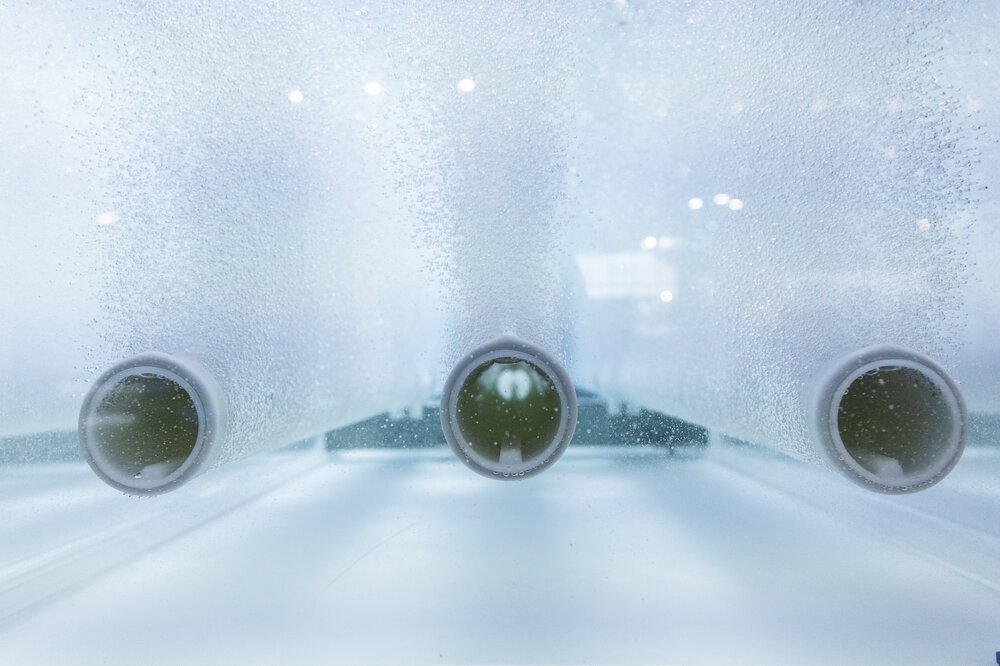IFAT Munich: water-wise urban development as a task for the future
February 23, 2022
- Municipalities between heavy rain and drought
- Intermunicipal cooperation and legal situation to be optimized
- Key topic of IFAT Munich from May 30 to June 3, 2022
It is likely that our cities will have to cope with alternating periods of heavy rainfall and drought in the future, requiring a paradigm shift in how rainwater is handled, outlined by the buzzword "sponge cities." IFAT Munich will be the opportunity to discuss challenges and obstacles, as well as to present solutions and best-practice examples. The world's largest trade fair for environmental technologies will be held in Munich from May 30 to June 3, 2022.
Many municipalities around the globe have to deal with the challenges of temporarily too much or too little rainwater. As a result of climate change, cities and municipalities in Germany will most likely be affected even more frequently and severely by heavy rain, flooding, heat waves and drought in the future.
One of the most effective approaches to adaptation is the concept of the "sponge city", which is based on the idea of urban planning to absorb as much rainwater as possible in green areas, wetlands and multi-functional storage areas instead of directly discharging it into sewers. Ideally, this will not only mitigate the effects of storms, but also store precious rainwater for subsequent dry periods and can then be used to keep trees and green spaces alive. Together with green roofs and facades, this helps to cool down and improve the air quality in the city.
European pioneers: Copenhagen and Vienna
Along with Asian forerunners such as Singapore and various cities in southern China, several European cities now also have ambitious sponge city projects. Copenhagen and Vienna are considered pioneers here: since 2014, the Danish capital has had a corresponding water management system in place, including a network of underground relief tunnels and the irrigation of urban greenery with water from centrally located wastewater treatment plants.
In the Austrian capital, a new district called Seestadt is being built on the former Aspern airfield. Water-wise measures implemented here include generous, contiguously designed root spaces that store precipitation water and release it to urban trees over long periods of time. In addition, seepage, filter and settling basins were integrated into the tree pits and planted with road salt-resistant bushes, thus acting like decentralized miniature sewage treatment plants.
Germany: lots of projects in different stages and dimensions
In Germany, Hamburg is a prominent example: according to the water supply company Hamburg Wasser new development areas have been created in the Hanseatic city in recent years where rainwater is almost completely decoupled from the sewerage system. Also, many other cities—Münster, Berlin, Munich, Ludwigsburg, Leipzig—have already implemented sponge city projects of varying scope. And many more are being planned and implemented—often with scientific support—and are carried out in intermunicipal networks: in the future initiative Klima.Werk, 16 cities along the Emscher, a tributary of the Rhine, are working together with the Emschergenossenschaft water management association on the blue/green transformation.
Essential: intermunicipal cooperation
For this change to succeed in as many other cities and municipalities as possible in the future, it is important that the various departments of the respective municipality cooperate very closely—above all spatial and traffic planning and the green spaces department, in addition to urban drainage. "Ideally, this cooperation begins in phase zero, i. e. before the project actually starts," emphasizes Johannes Lohaus, Executive Board Spokesman for the German Association for Water, Wastewater and Waste (DWA). Potential investors should also be brought on board at this stage, in his opinion.
Legal framework still subject to improvement
Legally, such projects are already possible today based on current law. The wastewater legislation of the Federal Water Act, the state water laws, and the Federal Building Code give priority to decentralized precipitation water management. "However, the legal framework needs to be further optimized in terms of a water-wise city of the future," Lohaus says. This includes a clear legal mandate for the development of decentralized precipitation management in the Federal Water Act. In addition, the federal states should create possibilities for (co-)financing heavy rainfall risk management. According to the DWA expert, the state laws currently do not sufficiently provide for this possibility.
Water-wise cities—a central topic at IFAT Munich 2022
The water management adaptation of cities and municipalities to climate change is one of the core topics of the world's leading trade fair for water, sewage, waste and raw materials management: IFAT Munich 2022. Partner institutions of the show, such as the Bavarian Ministry of the Environment, the DWA and the German Federal Environment Foundation (DBU), will organize matching events in the fair’s conference program. Furthermore, the German Association of Local Utilities (VKU) plans trade fair tours to present specific solutions for heavy rain and flood prevention.
IFAT Munich will take place from May 30 to June 3, 2022 at Munich’s trade fair center.
Downloads
510284

- PR Manager


